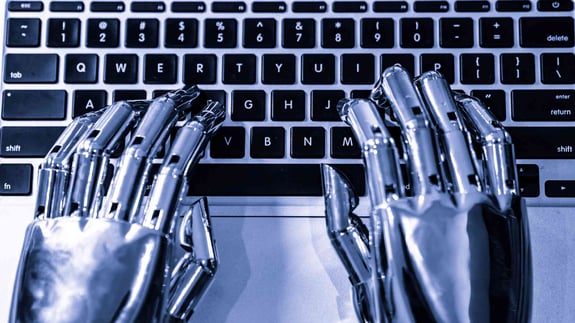We are moving towards a more data-driven world, and businesses are realizing the importance of utilizing their data effectively to gain insights and make informed decisions. Artificial Intelligence (AI) has become a key player in this realm, and its potential for enhancing data usage in businesses cannot be overstated. AI has the potential to revolutionize workplaces by streamlining processes, reducing costs, and improving productivity.
10 ways that AI can help build a better workplace
- Better Decision-Making: AI can analyze data and provide insights to help leaders make more informed decisions. For example, it can analyze employee performance data to identify areas where training or coaching is needed.
- Automation: AI can automate routine tasks such as data entry, freeing up employees to focus on more strategic tasks. This can help to increase efficiency and reduce errors.
- Health and Safety: AI can help to improve workplace safety by monitoring and identifying potential hazards, such as dangerous machinery or toxic substances.
- Predictive Analytics: AI can analyze data to predict future trends and identify potential issues before they become problems. For example, it can predict which employees are at risk of leaving the company, allowing managers to take proactive steps to retain them.
- Recruitment: AI can be used to improve the recruitment process by analyzing resumes and identifying the best candidates for a job. This can help to reduce bias and ensure that the most qualified candidates are hired.
- Employee Engagement: AI can help to improve employee engagement by providing personalized feedback and recognition. For example, it can analyze an employee's work and provide specific feedback on areas where they excel and areas where they need to improve.
- Training and Development: AI can provide personalized training and development opportunities for employees. For example, it can recommend training courses or resources based on an employee's performance data and learning style.
- Collaboration: AI can be used to improve collaboration between employees by providing tools for remote work and virtual meetings. For example, AI-powered chatbots can help to schedule meetings, take notes, and provide reminders.
- Workforce Planning: AI can predict future workforce needs and identify potential skill gaps. For example, it can analyze data on employee performance and turnover to predict which roles are likely to experience shortages in the future.
- Data Analytics: AI can analyze large amounts of data and identify trends and insights. For example, it can analyze customer data to identify patterns in purchasing behavior and help companies make better marketing decisions.
Don't let AI lead the process!
Overall, the potential benefits of AI in the workplace are numerous and significant. From improving decision-making and efficiency to promoting diversity and inclusion, AI has the potential to transform the way we work and build a better workplace for all.
But here’s the catch. You can’t outsource critical thinking or making mistakes. You can’t leave human-to-human communication merely to machines (pun intended). The most crucial data for you to consider is the feelings, experiences, and learnings of your people, and customers. So, make sure to collect data that matters - ask your people how they’re doing and how their work should be. AI can be a great help, but it should never lead the process.


